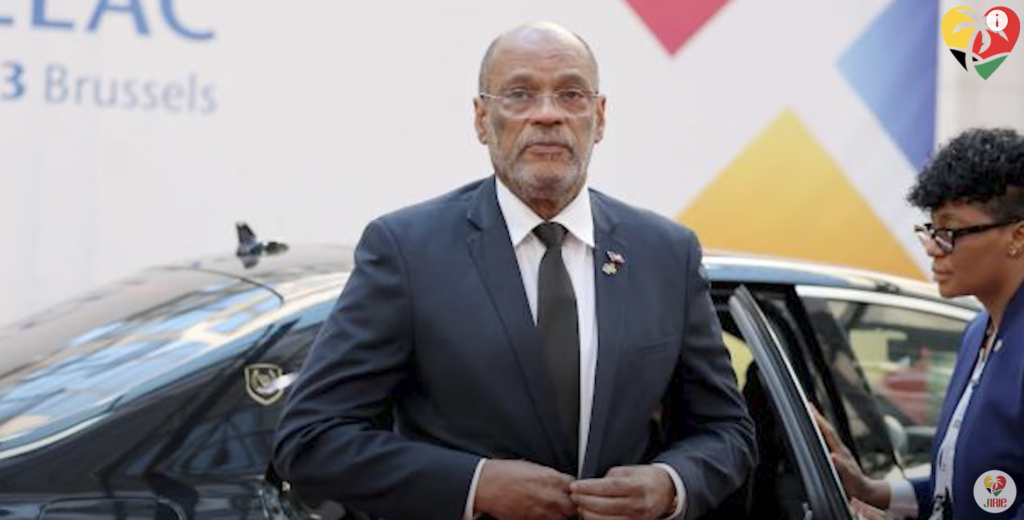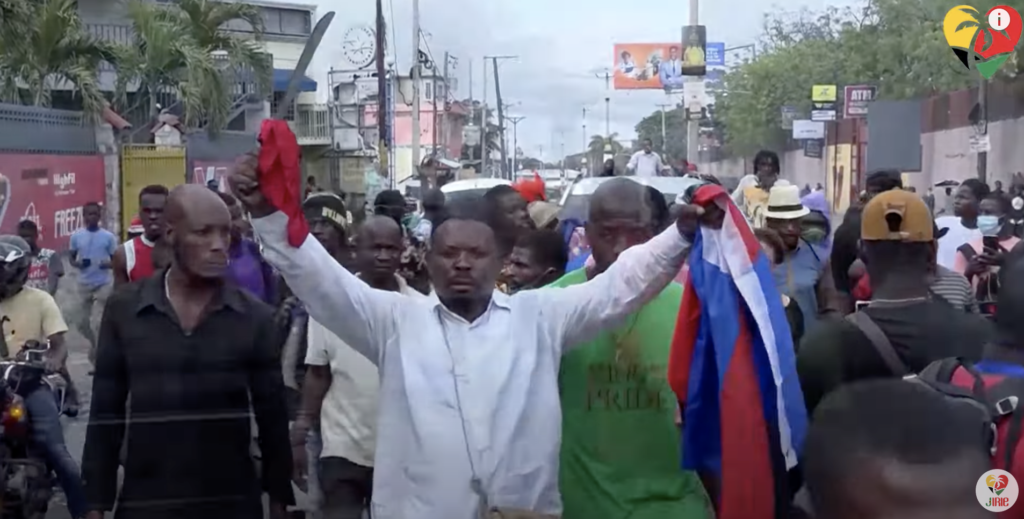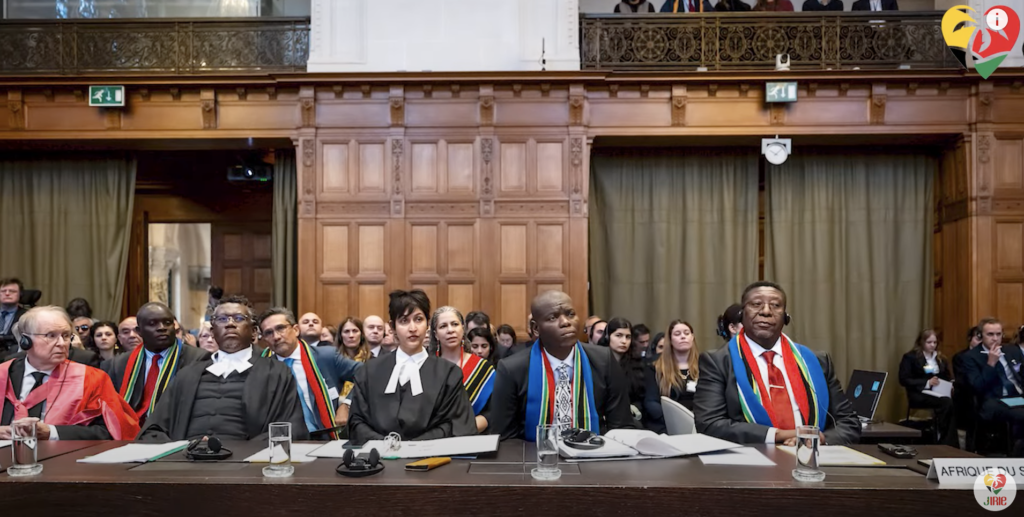Today we explore the urgent questions:
What led to the Prime Minister’s resignation?
What’s next for Haiti and its people?
Plus, we’ll uncover the crucial role of international intervention and the challenges ahead.
Stay tuned to Caribbean Focus for a gripping insight into Haiti’s struggle for stability and hope for a brighter future!
There have been quite a few recent developments with Haiti. Following the Haitian Prime Minister’s step down, his party has been dissolved amid the tense situation in the country. But what made him resign, and what will be the future developments for the country now over the near future?
Prime Minister Resignation

Haiti’s Prime Minister, Ariel Henry, has agreed to give up after weeks of escalating pressure and rising violence in this country. This follows a meeting of regional leaders in Jamaica on Monday to discuss the country’s democratic transition.
Mr. Henry is currently stranded in Puerto Rico after being stopped by armed groups from going home. He stated that his government would resign after the “installation of a transition council.”
“I’m asking all Haitians to remain calm and do everything they can to restore peace and stability as soon as possible,” Mr. Henry said in a video announcing his Resignation.
He has not been allowed to return to Haiti since leaving in late January for travels to Guyana and Kenya, where he signed an agreement to deploy an international security force to combat violence.
Mr. Henry has been leading the country on an interim basis since July 2021, following the death of former President Jovenel Moïse. However, he has repeatedly postponed elections, citing the need to restore security first.
Many Haitians questioned the length of his unelected rule, and Mr. Henry’s Resignation was one of the top demands of the highly armed gangs that have recently tightened their grip on the capital, Port-au-Prince. These gangs have targeted the main jail, allowing thousands of convicts to escape, as well as police stations, the capital’s international airport, and its port.
What led to his Resignation?
It was already a difficult period. Protesters called for the president’s Resignation, claiming he had overstayed his term.
Former President Jovenel Moïse referred to “dark forces” that he claimed were targeting him. Then, he was brutally assassinated by Colombian mercenaries.
In the days following his killing, there was confusion over who should rule the country.
Speaking after the ceremony on July 20, 2021, the new prime minister Ariel Henry promised to restore order and hold new presidential elections “as soon as possible.”

That time never arrived, as no elections were held during his 32 months in office. Mr. Henry stated that the security situation had worsened to the point where free and fair elections were impossible. During this time, Haitians became increasingly frustrated as increased gang violence combined with political inaction. On February 7 this year, the day that new presidents are typically inaugurated in Haiti, demonstrators flocked to the streets of the capital to demand Mr. Henry’s Resignation.
Prime Minister Henry answered by declaring that he wanted to hold elections in August 2025. This just seems to irritate the Haitian people. Some observers viewed the idea of Mr. Henry remaining in power for another year and a half as the final straw.
Kenya has volunteered to head a multinational police team deployed to Haiti to combat the gangs responsible for the wave of kidnappings and murders that have plagued the city. However, the Kenyan High Court stopped the idea.
On Tuesday, the Kenyan government reversed course, declaring that it was suspending the deployment after Henry quit overnight and would reconsider after a new Haitian government was in place. The unexpected change of events casts severe doubt on the future of a multinational mission for Haiti, adding to a string of circumstances that had already put the operation’s prospects into question.
Kenya’s government pledged 1,000 officers to lead an international security force in July, but the initiative has been bogged down in court battles ever since, effectively putting a mission on hold to which a half-dozen other countries have now agreed to deploy people.
A Kenyan judge decided in January that the government’s intention to send cops was illegal without a reciprocal arrangement with the host country. As Kenya’s government reached an agreement with Henry, which it believed satisfied the judge’s concerns, security situation in Haiti deteriorated.

With Henry out of the country, armed factions in possession of much of Port-au-Prince surrounded the international airport and released thousands of detainees, heightening Kenyan concerns about a mission that many considered too perilous and not in the country’s best interests.
Prime Minister Henry traveled to Nairobi at the end of February to meet with Kenyan President William Ruto in an effort to renew the deployment. Opponents of Mr. Henry feared that he would try to use foreign police officers to defend himself while maintaining his own power base. It is not a coincidence that a series of coordinated gang attacks raced through the city just as Prime Minister Henry visited with President Ruto.
The gangs blocked Toussaint Louverture Airport, preventing the now-former Primer minister from returning, and he has been detained in Puerto Rico ever since. For ten days, he did not speak publicly. A few social media tweets showed him congratulating a Haitian radio station on its anniversary and reminded folks that the clocks were moving forward. He emerged on Monday to announce his resignation “immediately after the installation of the council.” While it is uncertain when that will occur, Mr. Henry will find it difficult to wield influence while in Puerto Rico.
Now, What is The way forward for The People of Haiti:
As the Prime Minister resigns, one question immediately comes to everyone’s mind. What is the way forward for the Haitian people and the country itself? It’s obvious that the country is deteriorating, and there’s no telling how long it will take to rectify the situation. Meanwhile, the US government needs to be more transparent. With a lengthy history of US interference, including military occupation from 1915 to 1934, Haitians are accustomed to looking to their much larger neighbor for signs about its intentions, even when there is no clear guidance.
The Biden administration has avoided directly involving itself in discussions about Haitian political solutions, citing the long history of US interference in Haitian affairs.
However, the legacy of the United States’ participation in Haiti means that even an apparently well-intended effort to stay out of the Haitians’ way is interpreted as more American political meddling. The United States should communicate more clearly with Haitians, especially if the direction is that the United States will not participate in domestic Haitian political negotiations.
Here are The Challenges:
The success of the newly formed seven-member transitional council is crucial. It faces the challenge of gaining legitimacy and trust from the Haitian people and various political factions. Armed gangs continue to control large swathes of Port-au-Prince and pose a significant threat to stability. Disarming or integrating them will be a complex task. Holding free and fair elections is a long-term goal. The transitional council will need to establish a credible process and a timeline. The country faces a looming hunger crisis and requires continued international aid.
The Resignation could open doors for a more inclusive political dialogue involving various stakeholders. The promised additional $100 million from the US for a UN-backed force could help tackle gang violence. Addressing corruption and creating job opportunities are essential for the country’s bright future.
We want to hear from you!
What are your thoughts on the situation unfolding in Haiti?
Do you believe international intervention is the key to restoring stability, or do you think Haitians should tackle these challenges independently?
And what do you envision as the most crucial steps for Haiti’s path forward?
Share your insights and opinions in the comment section below.
Your voice matters in this critical discussion. Let’s engage and exchange ideas to foster understanding and support for Haiti’s journey towards a brighter future.
We’re committed to bringing you the most relevant and impactful Caribbean-focused content. What topics do you want us to cover next on our channel?
Let us know in the comments below. Thank you for being part of our community!


